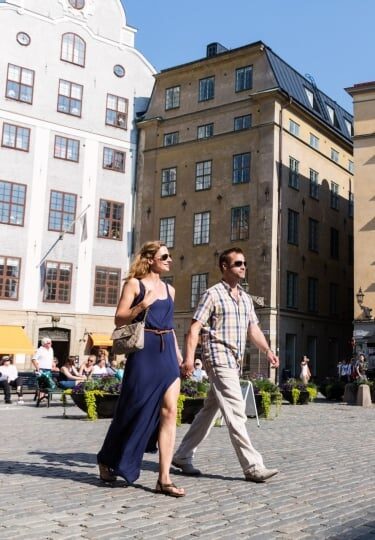Picture Sweden; perhaps you’re imagining forested wilderness, cozy, candle-lit restaurants, and clean-lined Scandinavian style. Or maybe you’re wondering what is Sweden known for beyond its pristine scenery and deservedly lauded lifestyle?
A true Scandi smörgåsbord of delights, Sweden’s gifts to the world are many: dancefloor-friendly Europop, Viking legends, and that fabled flatpack furniture store. With just over ten million inhabitants, Sweden is also constantly celebrated for its quality of life, citizens’ happiness, and strides toward an equal society.
Read on to get better acquainted with what Sweden is famous for and how you can best experience this Nordic nation’s attractions and culture? After all, you don’t want to get your fika, lagom, and mysa mixed up.
Stockholm’s Gorgeous Gamla Stan
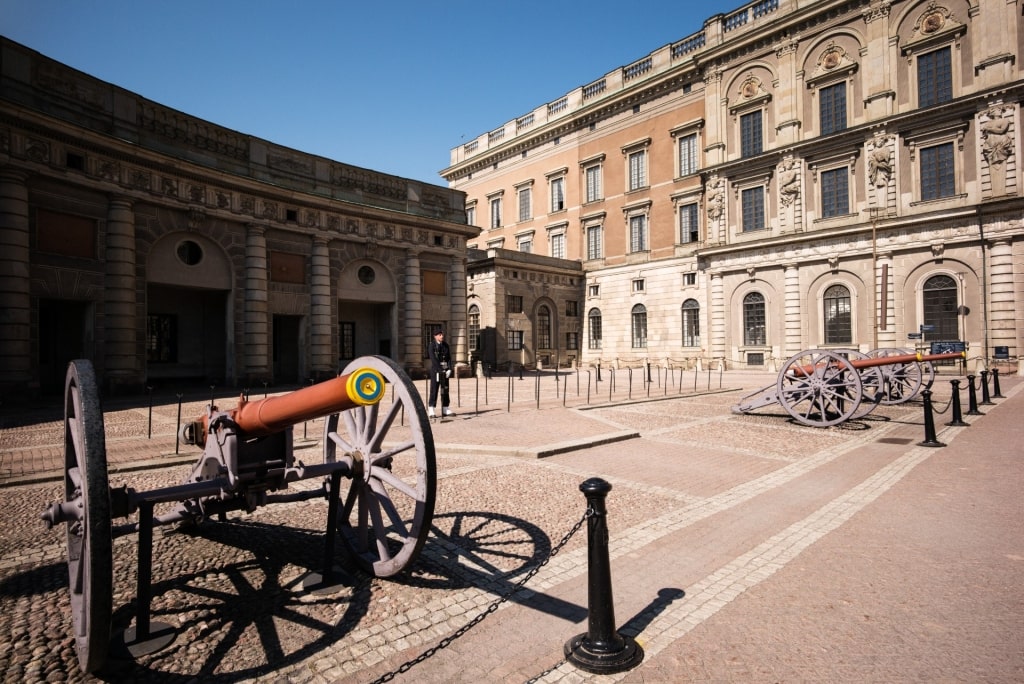
Royal Palace, Stockholm
The storybook European capital city of Stockholm is fabled for plenty: world-class museums, regal palaces, and impressive, art-adorned metro stations.
But Gamla Stan, the gorgeous and storied Old Town which traverses the islands of Stadsholmen, Helgeandsholmen and Riddarholmen, is the city’s crown jewel. Even the genuine regal riches are housed here inside the Royal Treasury.
As you stroll Gamla Stan’s web of cobbled streets, you’ll feel like you’ve entered a time capsule. From the opulent Royal Palace to striking Storkyrkan, a 12th-century cathedral decked with important sculptures and artifacts, many of Stockholm’s greatest attractions are nestled in this historic quarter.
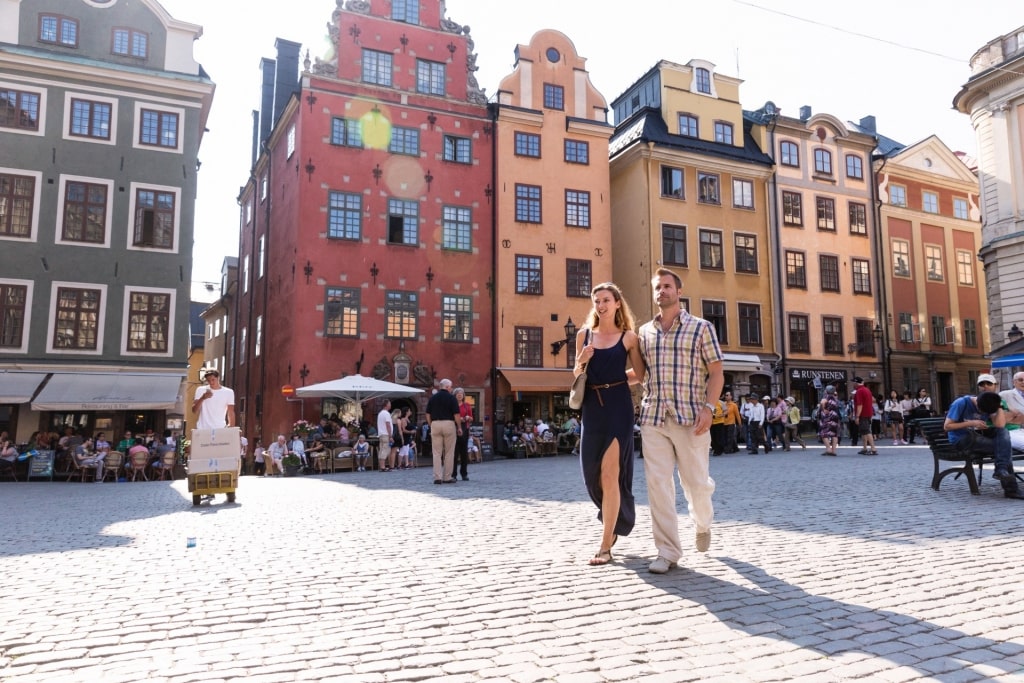
Gamla Stan, Stockholm
Central to it all is Stortorget, the oldest and prettiest public square of this Scandinavian city. Flanked by candy-colored houses, specialty bakeries, and the Nobel Prize Museum, this has been an important neighborhood meeting place for over 800 years.
You might be jostling with fellow visitors eager to spot Sweden’s most famed sights, but slip away to a serene side street and soak it all in—ideally at a cozy cafe or sunlit terrace.
Fika
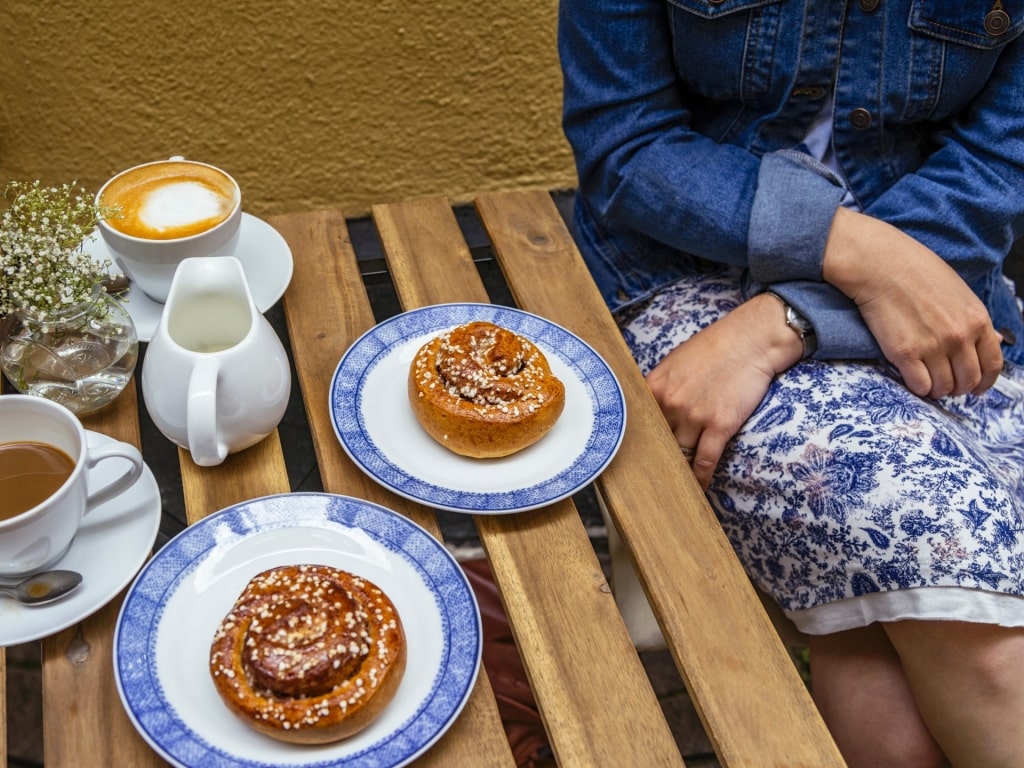
Cafe in Stockholm
If you ask a local what is Sweden known for beyond its borders, they might hazard a guess at fika, usually understood by visitors as a coffee and cake break. But the art of fika is much more than just refueling with an afternoon snack.
Fundamentally, fika is about making the time to catch up with friends, loved ones or colleagues; some workplaces even stipulate these breaks. Appreciating the moment and conversation is as important (if not more so) as the caffeine.
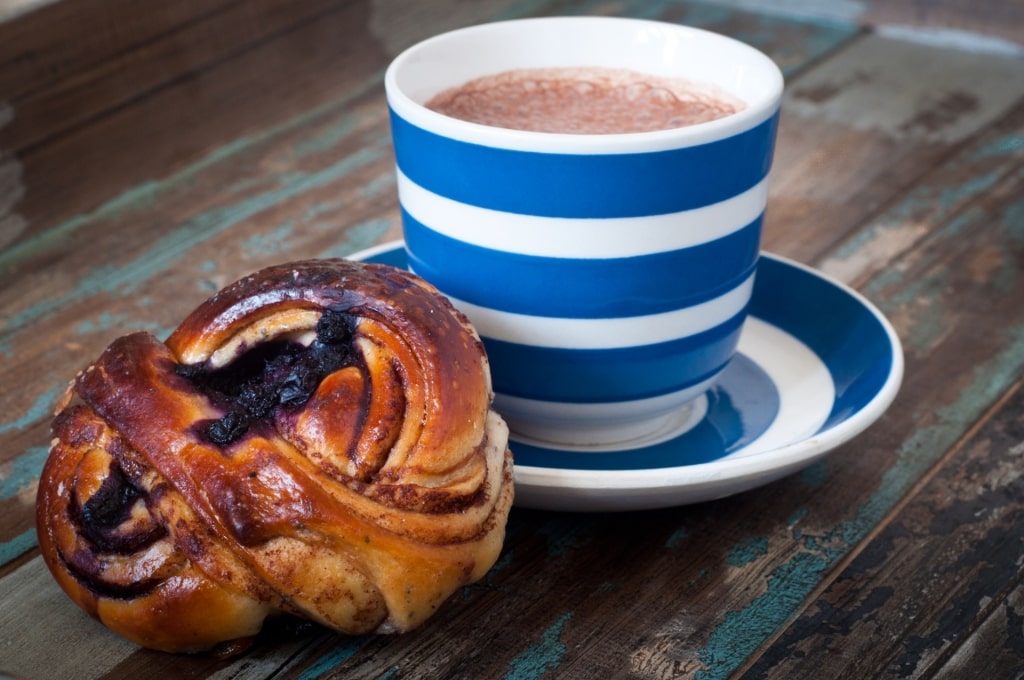
Cinnamon bun
To fika correctly, you’ll want to forgo the takeaway cup in favor of a pause, enjoying your companions’ company with a cinnamon bun, slice of spongy princess cake, or a Semla (a Shrove Tuesday-linked bun bursting with whipped cream and almond paste).
Given fika’s popularity, it shouldn’t be any surprise that Swedes are also highly caffeinated and claim the second-highest coffee consumption globally.
Vikings, Legends, & Mythology
Old Norse mythology and Swedish folklore are some of the most fascinating aspects of Sweden’s culture. Tales of otherworldly creatures, trolls, and näcken (a river spirit) still spill out of the country’s forests and into storybooks, as they have for centuries.
But of all the legendary layers that have shaped Sweden, the real-life Viking stories are perhaps what Sweden is famous for the most.
The period from the ninth to 11th century, known as the Viking Age, was a defining stretch in Sweden’s storied past. Seafaring sagas, pirate missions, and explorers-turned-raiders are scrawled across the pages of history. For an introduction to this era—and to determine what’s fact and fiction—visit one of the nation’s Viking-focused museums.
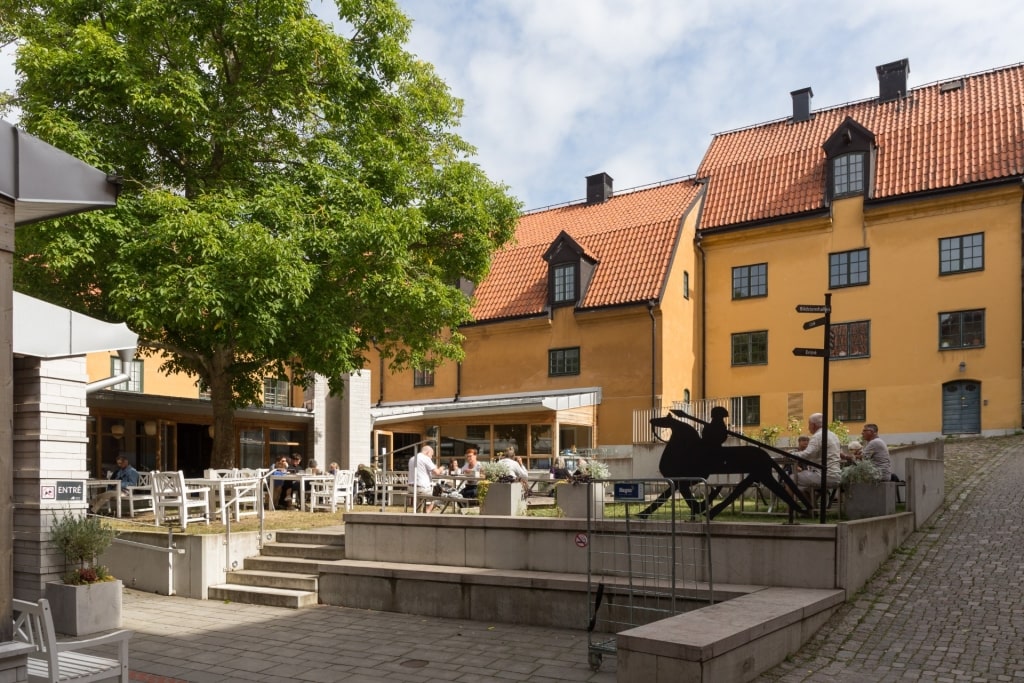
Gotland Museum, Visby Photo by Pymouss on Wikimedia Commons, licensed under CC BY-SA 4.0
In Visby’s Gotland Museum, picture stones (engraved slabs of rock) spotlight Viking outfits, day-to-day life, and religious practices. For a more interactive experience, visit Stockholm’s interactive Viking Museum for a costumed tour culminating in an animated journey tracing Ragnfrid’s Saga.
Islands, Canals, & Lakes
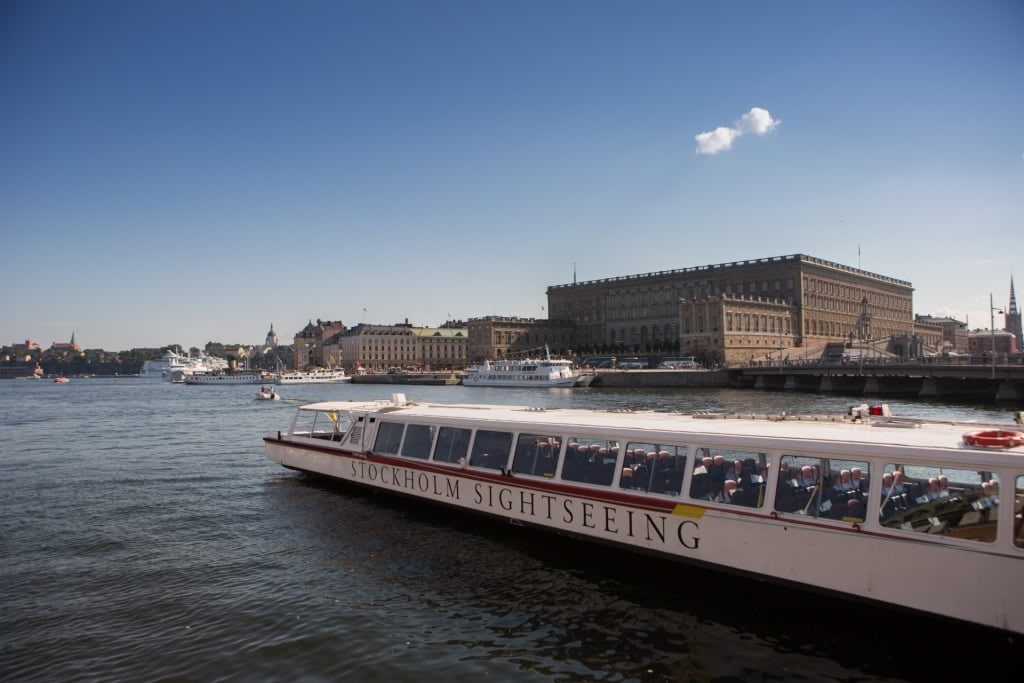
Royal Canal, Stockholm
Lagom is another Swedish word that symbolizes an integral part of society. It translates along the lines of “in moderation.” However, as a philosophical and cultural concept, it’s utilized more to mean “balanced living”; knowing when enough is enough rather than constantly seeking more.
Clearly, Mother Nature misunderstood this term when she crafted the Swedish archipelagos, as Sweden is known as the country with the most islands in the world.
Over 250,000 isles, islets, and skerries are scattered like stepping stones across the country’s surrounding waters. And while many of them are uninhabited, it’s still a record-claiming number.
Stockholm itself is constructed across 14 islands, while the greater Stockholm Archipelago boasts an additional 20,000. The Baltic Sea, and water in general, are arguably the soul of Sweden’s DNA.
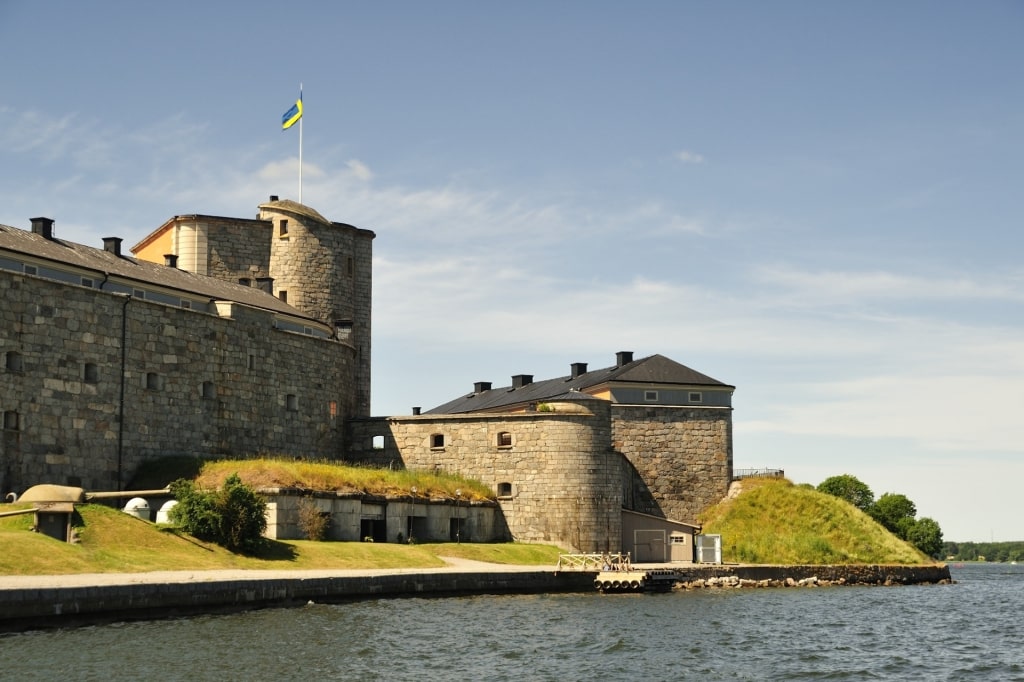
Vaxholm
Boat tours make it easy to explore these outposts; fortified Vaxholm or Gotland are great places to start. Short excursions or kayak rentals along Stockholm’s Royal Canal offer another view of this modern city.
Sweden’s lakes are equally bewitching; Lake Mälaren, one of Sweden’s most impressive bodies of water, is easily admired when visiting Stockholm’s Drottningholm Palace.
The Medieval City of Visby
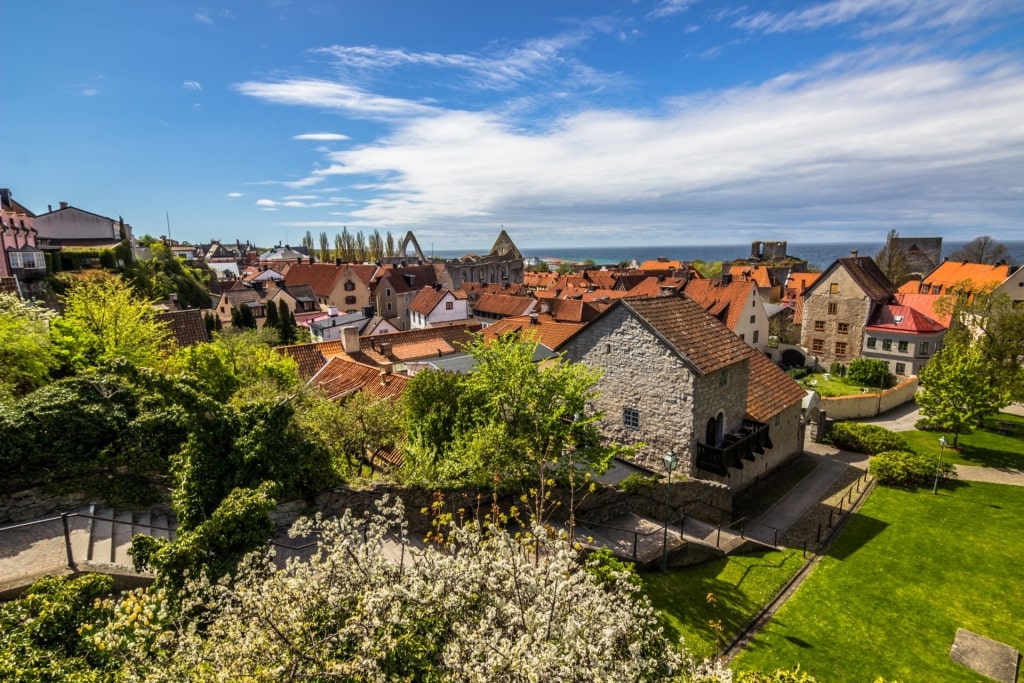
Visby
UNESCO-listed Visby is considered the best-preserved medieval city in all of Scandinavia. An important Baltic Sea trading post since the Viking Age, although its history dates back millennia, it’s the largest city on the island of Gotland and clusters much of what Sweden is known for within its 13th-century ramparts.
Inside the historic walled city—commonly referred to as the Hanseatic Town of Visby due to the trading league’s prominence here between the 12th and 14th centuries—it’s almost as if time has stood still.
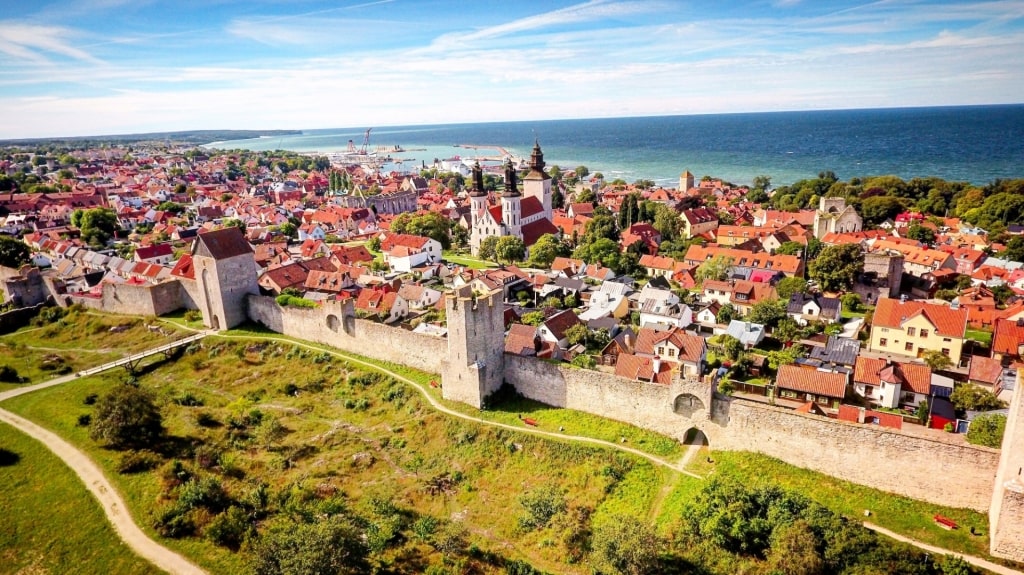
Visby
Tracking the two miles of sturdy walls and towers is a must, as is visiting the ruins of 12th-century religious buildings such as St. Karin and St. Clemens Church.
The Gotland Museum is a trove of stories and antiquities, spanning Viking archeological discoveries and an impressive collection of silver treasures. The gardens of Visby are equally captivating, and a spring or summer visit will allow you to see the city’s cobbled streets brightened by colorful blooms.
Gotland’s Beaches and Fishing Villages

Gnisvärd
Sweden is famed for its innumerable islands, and Gotland, being the largest, shouldn’t be overlooked. Aside from medieval Visby, nature reserves, idyllic fishing villages, and tranquil Baltic Sea beaches abound.

Högklint Nature Reserve
Head to the Högklint Nature Reserve, where limestone sea cliffs tower over the lapping waters below, for a blend of scenery and serene strolls.
At Gnisvärd, one of Gotland’s 18th-century fishing stations, you’ll spot traditional red fishing cabins and unique ancient burial rituals. In the Bronze Age, for example, graves were arranged in a boat shape. And at sweeping Sandviken, you can experience some of Sweden’s best sandy shorelines.
Scandi Design
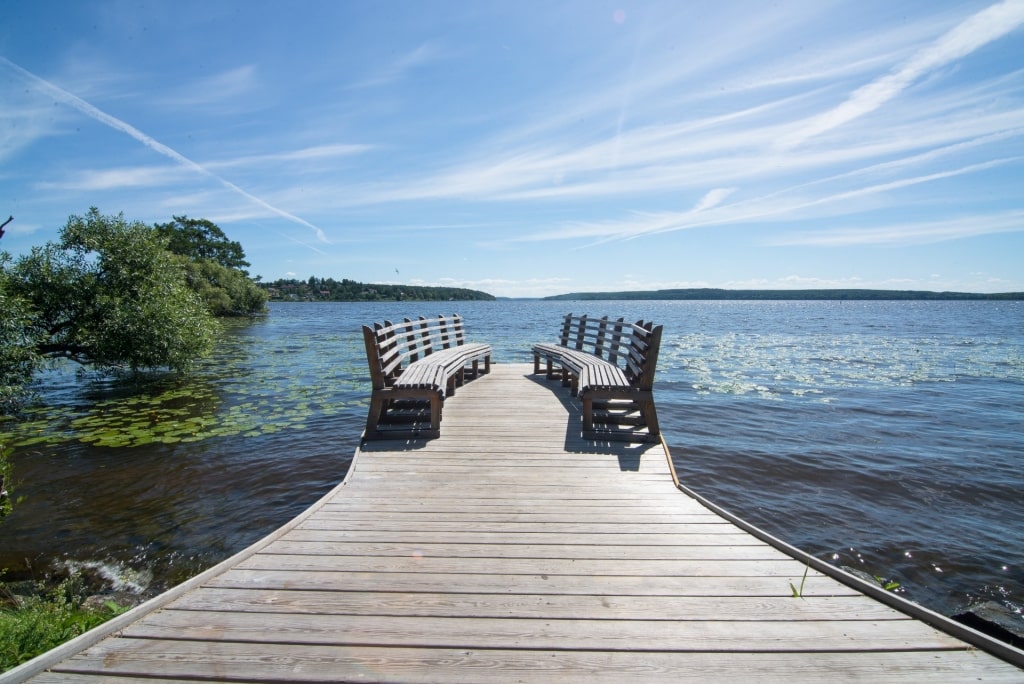
Scandi design
When discussing what is Sweden famous for internationally, IKEA will likely get a mention. Since its first store opened in 1988, the easy-to-assemble homeware brand has taken the world by storm, bringing the aesthetics of Scandi simplicity to the global masses.
Yet Sweden’s creativity is much more than minimalism and clean lines. From innovative technology, such as Spotify’s streaming service and Volvo’s signature style, to Fjällräven backpacks and textile patterns influenced by the designs of the native Sámi people, the country’s design credentials are plentiful.
Seasonal Cuisine

Kanelbulle
If there’s one thing that Sweden is famous for when it comes to its cuisine, it’s köttbullar—meatballs rich in seasonings that are considered the de facto national dish. Yet Sweden’s gastronomy stretches far beyond the gravy-soaked staple.
From kanelbulle (cinnamon rolls) and lingonberry jam, boiled from scarlet berries found in the forest, to smörgås, open-faced rye sandwiches topped with tempting ingredients at lunch, taking a bite of Swedish cuisine is often a lesson in seasonality.
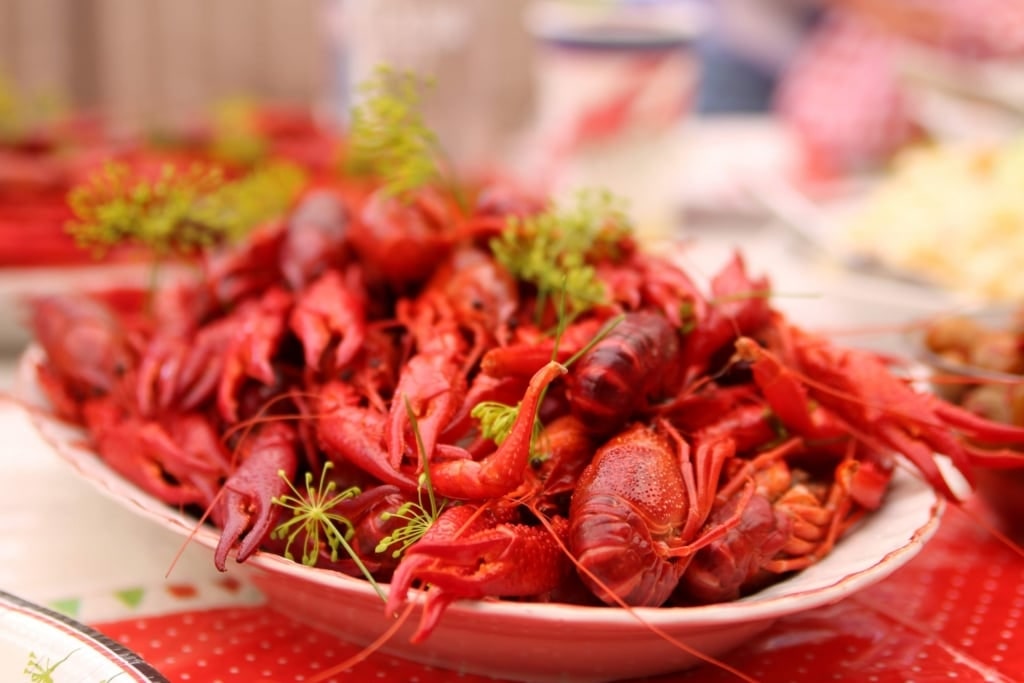
Crayfish
Seafood is also savored, with surströmming (fermented Baltic herring) and crayfish two of the most popular plates. There are even festivities dedicated to these crustaceans in August.
Dining well in Sweden is as much about the atmosphere as the recipes, and restaurants often embrace another Swedish concept, mysa. Like Denmark’s Hygge, this term is about creating a warm and welcoming environment, leading to cozy candlelit restaurants in abundance.
Read: The Ultimate Scandinavian Food Guide
Royal Palaces, Parks, & Castles
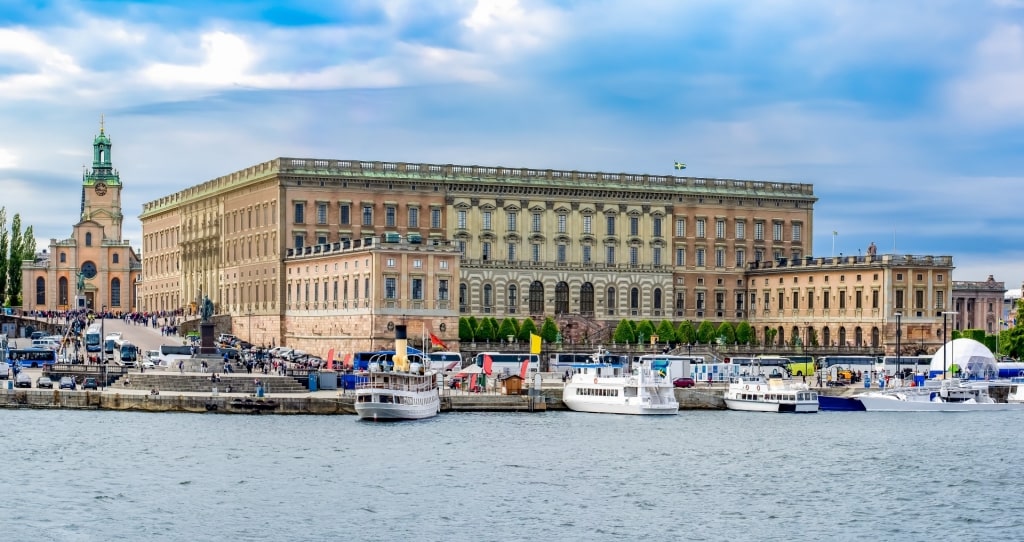
Royal Palace, Stockholm
Sweden has been a monarchy since the 10th century, making it one of the longest-continuous monarchies in the world. As such, visiting one of the country’s elegant royal residences will help you discover much of what Sweden is known for, both past and present.
Start at The Royal Palace in Stockholm’s Gamla Stan, the King’s official residence. Inside this Baroque marvel, you can meander through Royal Apartments, tour the treasury and witness the impressive changing of the guard ceremony. Guided tours are available and help bring the monarchy’s history to life.
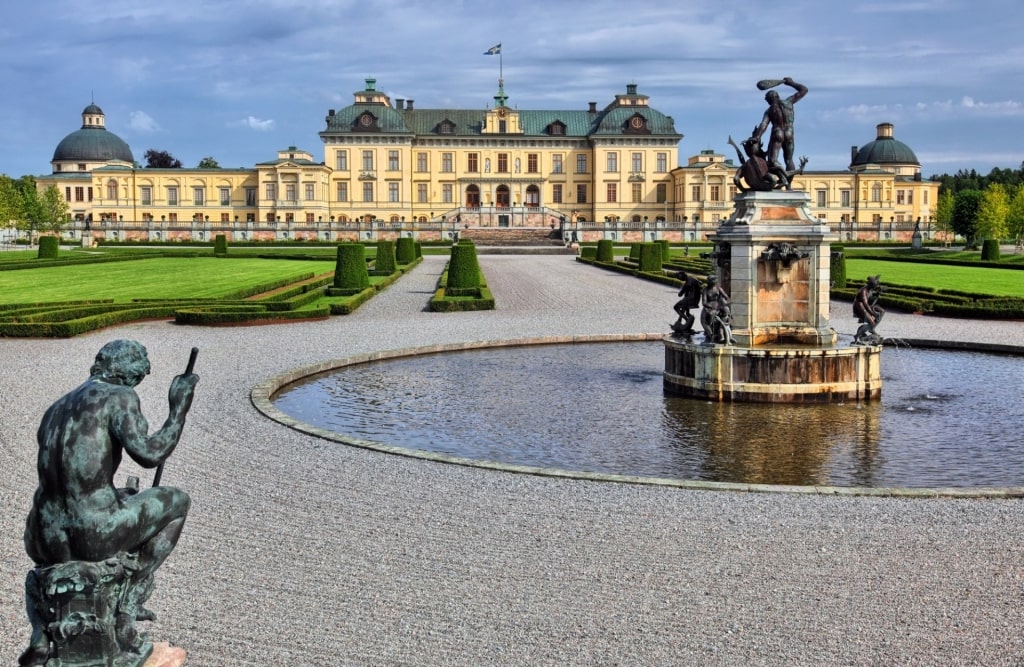
Drottningholm Palace
Another of the capital’s royal highlights is Drottningholm Palace, dating to the 1600s. Surrounded by stately gardens, this French-inspired palace has all the razzmatazz you’d expect, and while the southern wing remains the King and Queen’s abode, many of the grand halls and rooms are visitable.
The Vasa Warship
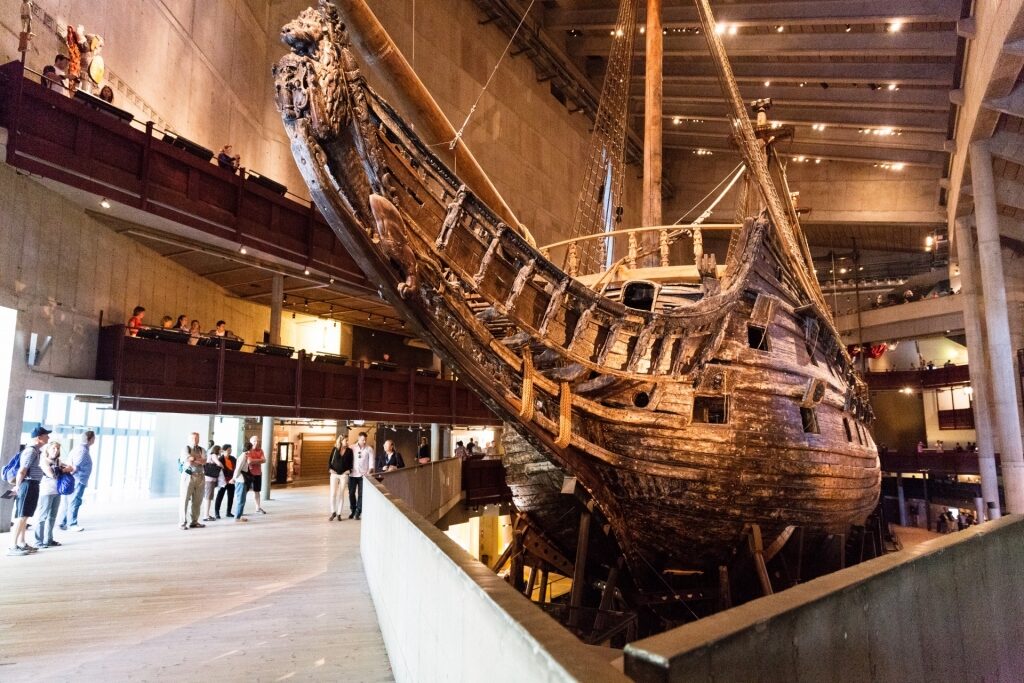
Vasa Museum, Stockholm
Ask a sailor what is Sweden known for, and they’ll likely recount the tale of the Vasa, a story that should have been about a history-defining vessel but sadly ended in disaster.
Constructed at the behest of King Gustavus Adolphus in the 17th century, this imposing wooden warship was more than flamboyant. Colorful, fear-provoking mythology carvings and row upon row of cannons defined one of the grandest and most beautiful ships of the time.
Tragically, the Vasa started to sink just 20 minutes into her maiden voyage due to the heavy and imbalanced load. For the next 300-plus years, she rested at the bottom of Stockholm Harbour.
In 1961, experts finally lifted the Vasa from the seabed and were pleased to discover the ship in well-preserved condition thanks to the frigid temperatures of the Baltic Sea. Now, the vessel stands in all its former glory inside a purpose-built museum space on Djurgården island and has become one of Sweden’s most visited attractions.
Culture, Art, & Museums
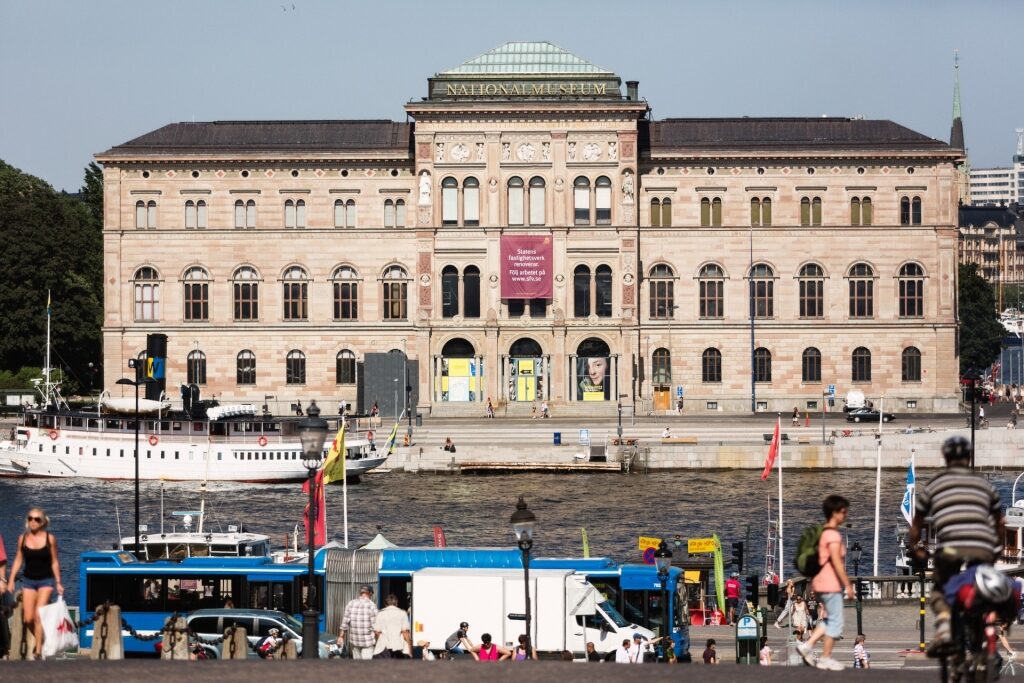
Nationalmuseum, Stockholm
Swedish art and culture have reverberated worldwide, with the works of famous painters such as Carl Larsson and Hilma af Klint and composer Wilhelm Stenhammar transcending the country’s borders.
In Stockholm, you can appreciate this creative spirit—former and current— at the city’s numerous cultural venues. The best museums in Stockholm span everything from the classics, such as the 16,000 fine art pieces on display in the Nationalmuseum, to Fotografiska and the Moderna Museet’s more contemporary collections.
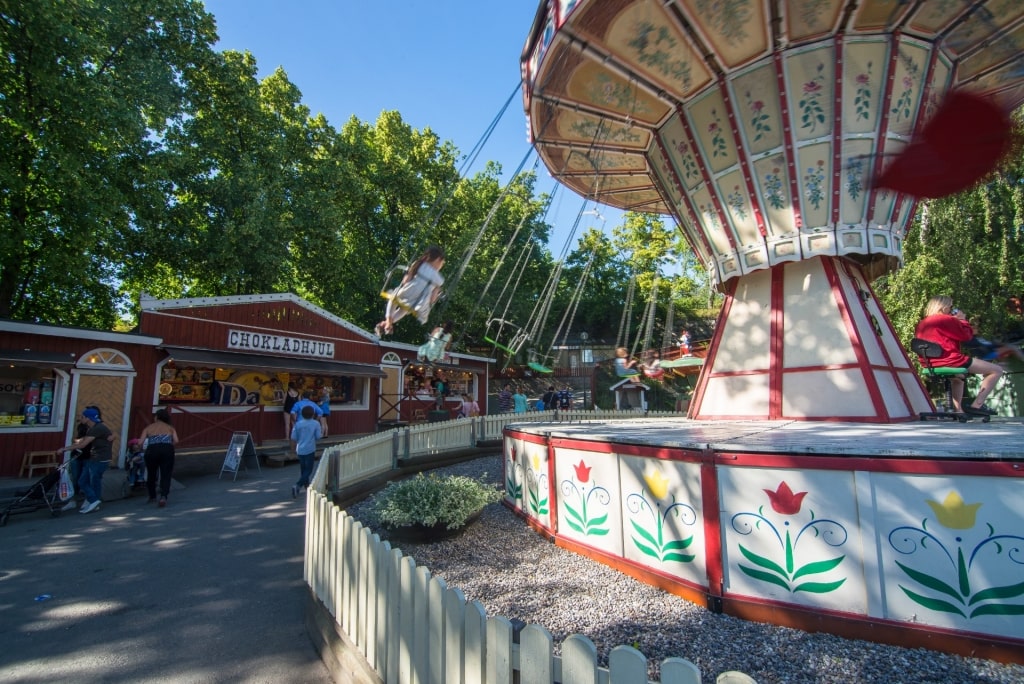
Skansen
Other fantastic spots to delve into Sweden’s culture include Skansen, the world’s first open-air museum, and the opulent Royal Swedish Opera. Even the Stockholm Metro has art credentials, with many metro stations sporting creative underground designs.
ABBA & Europop
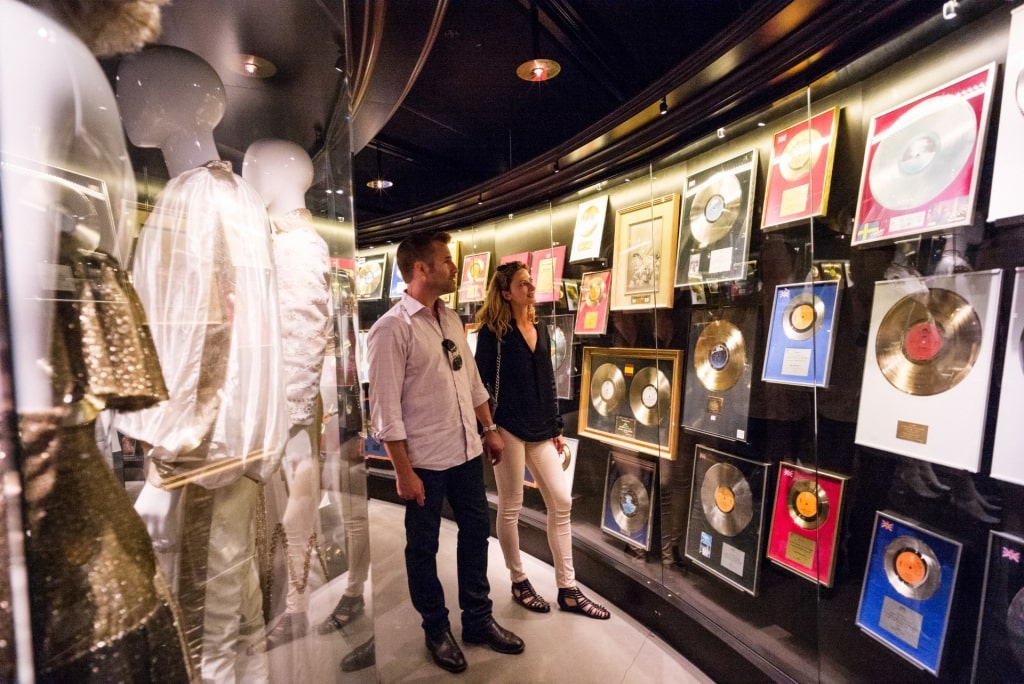
ABBA Museum, Stockholm
Europop and Sweden are inseparable, with stars including Ace of Base, Basshunter, Roxette, and Robyn having climbed the charts of many English-speaking countries. But it’s Eurovision—the annual continent-wide music competition—that has established Sweden’s pop credentials globally.
Artists such as ABBA and, more recently, double-winner Loreen have all found fame thanks to the contest, for which Sweden is the joint most successful country in the competition’s history.
In Stockholm, a visit to the ABBA Museum will take you on a fun and kitsch tour of the band’s impressive history, with sing-along stages and displays dedicated to their Eurovision win. It’s no surprise that Melodifestivalen—Sweden’s contest to determine their annual representative—is one of the country’s most-watched TV shows.
Snow & Ice
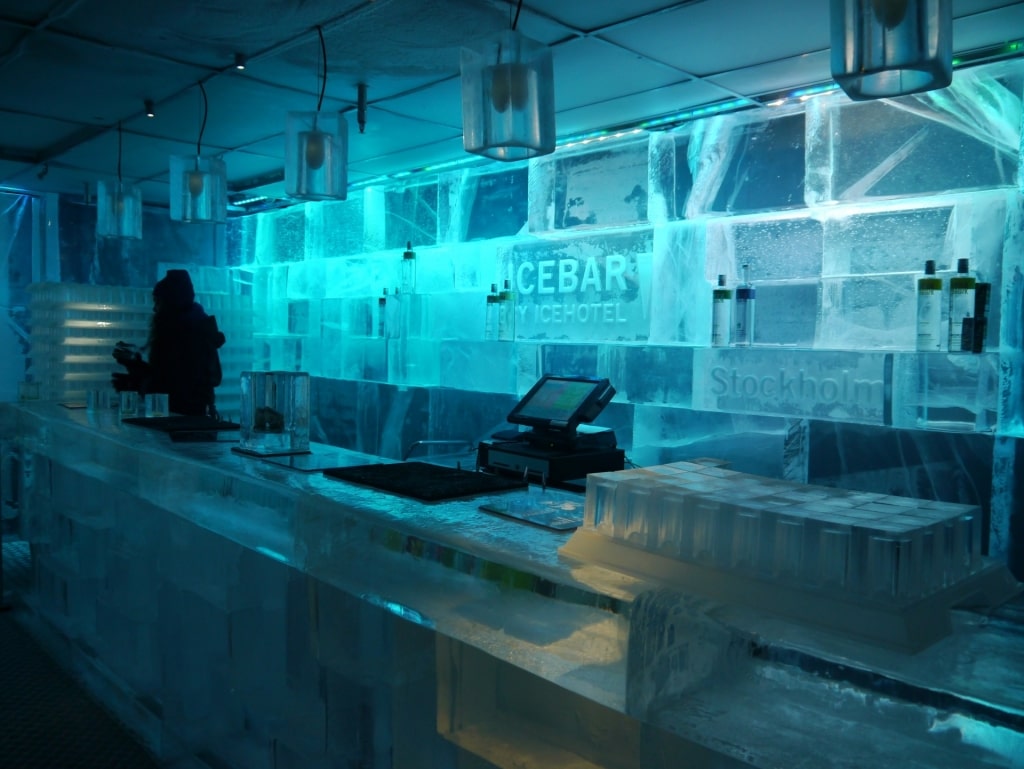
ICEBAR, Stockholm Photo by Zairon on Wikimedia Commons, licensed under CC BY-SA 3.0
In the colder months, Sweden—especially in Lapland—becomes a true winter wonderland, with a carpet of thick fresh snow coating forests and frosty lakes. Yet you can just as easily appreciate the country’s infinity with all things frozen in the warmer months.
Ice hockey is one of the nation’s most popular sports, and catching a game is possible for much of the year. Likewise, Stockholm’s ICEBAR offers a year-round taste of the Arctic, with ice sculptures, frozen furniture, and cocktails served in goblets carved from ice all adding to the spectacle. Warm outerwear is provided at the door.
Midsummer’s Celebrations
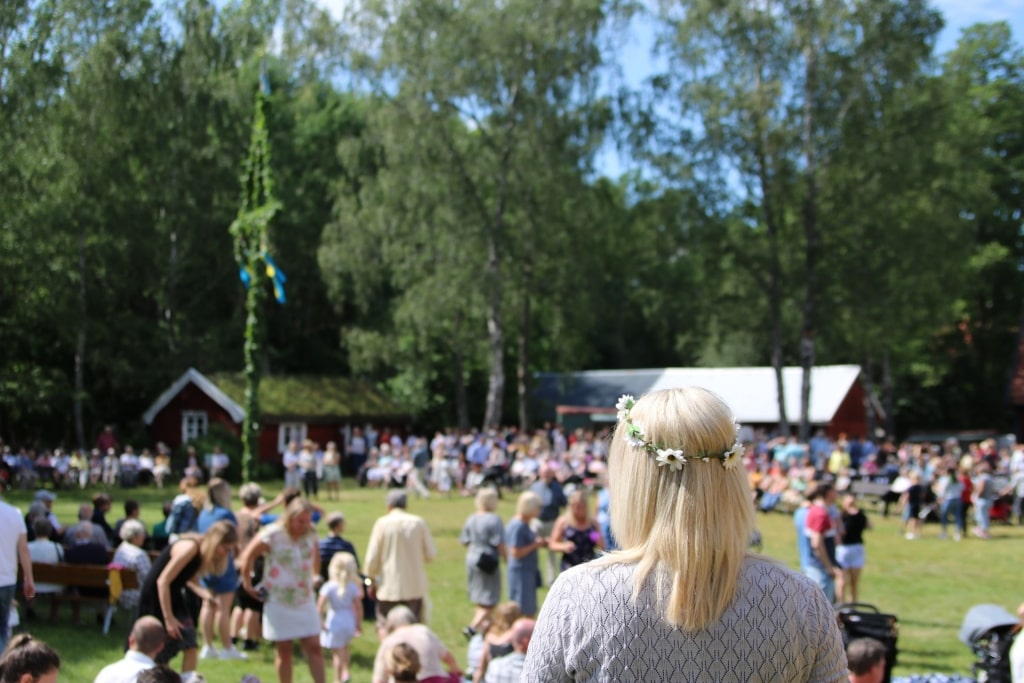
Midsummer celebration in Sweden
Sweden’s most famous annual event is June’s Midsummer celebration in honor of the summer solstice. The main festivities happen on a mid-month Friday evening, with maypole dancing, floral headdresses, and free-flowing schnapps all featuring.
But even if you’re not in Sweden for the occasion itself, the long summer days are a delightful time to visit. With the snow-covered landscapes long forgotten, there is a jovial aura across the country, and you’ll often see the best of Sweden’s spirit in summer as the city’s terraces and riverbanks spring to life.
Read: Best Things to Do in Stockholm
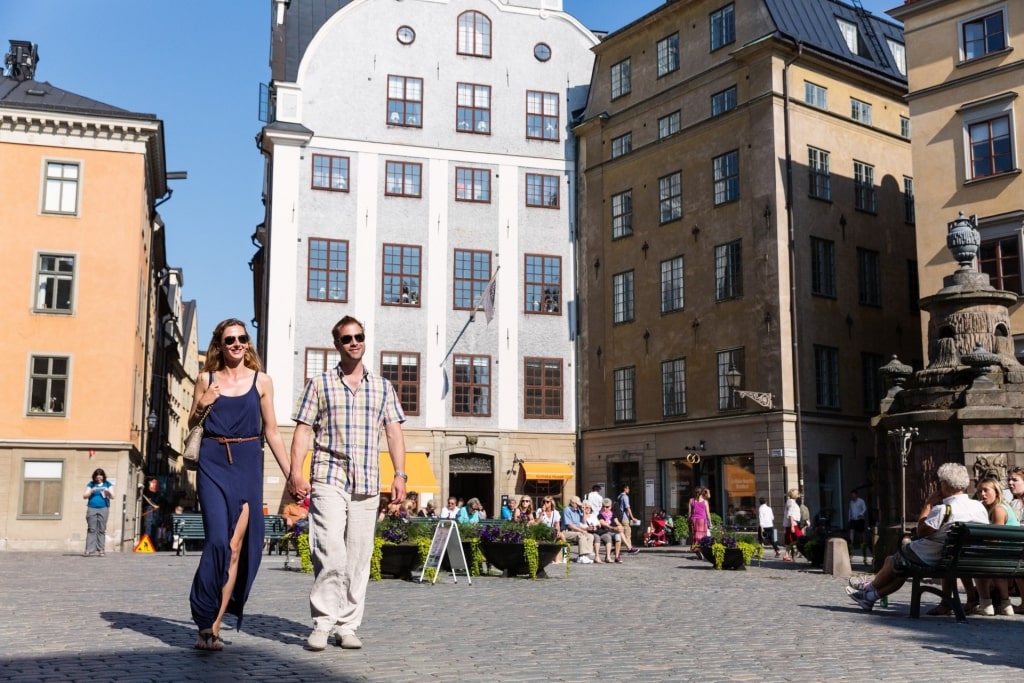
Gamla Stan, Stockholm
Ready to discover all the fantastic attractions and cultural experiences that Sweden is known for yourself? Browse Celebrity’s Sweden cruises to plan your perfect Scandinavian vacation.
